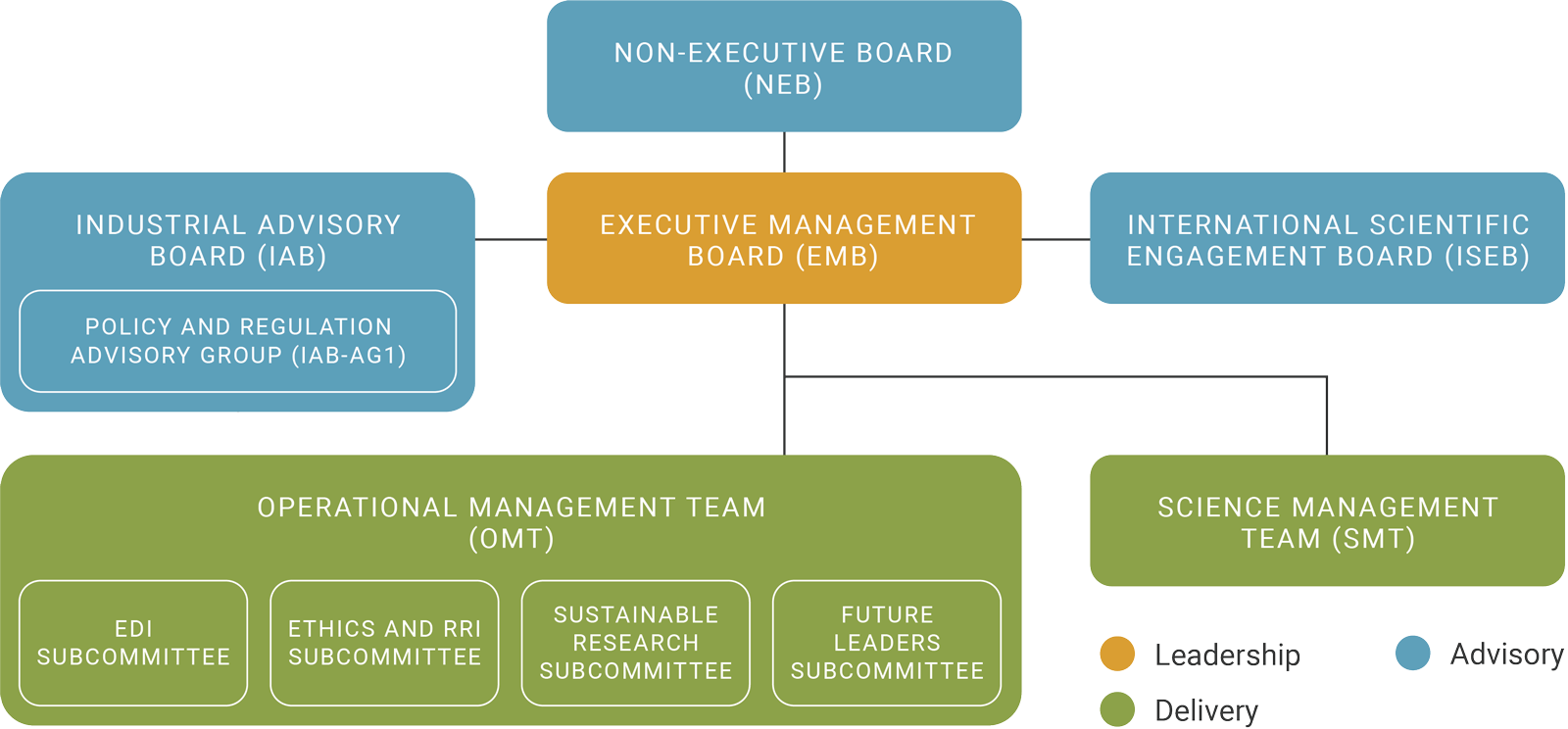
Anwesha Sarkar is a full professor of Colloids and Surfaces at the University of Leeds and is the Project Leader for NAPIC and also the Co-Director for the PERFORM Pillar. Her work focuses on oral processing, taste and texture of alternative proteins. Her work includes development of biomimetic tongue-like surface to measure in-mouth friction, which is now being used by food, food ingredients and allied soft matter companies to measure the astringency, texture mouthfeel of alternative proteins. Current research also seeks to develop technologies such as microgelation, selective enzymatic hydrolysis, glycation to improve mouthfeel of alternative proteins.


Professor Louise Dye is a Chartered Health Psychologist and Co-Director of the Institute for Sustainable Food at the University of Sheffield. Her research examines effects of nutrition on cognitive function, health and wellbeing and how to encourage and sustain dietary behaviour change at individual, organisational and societal levels. She has expertise in the design of both lab based experimental studies and free living interventions. Her work on breakfast and cognition highlights the importance of diet in children and food insecurity. Louise is Co-Director of the SFI/DAERA/UKRI funded Co-Centre for Sustainable Food Systems and leads a work package on increasing dietary fibre intake in low-income consumers in the UKRI funded H3 project. She is a Co-Director of the National Alternative Protein Innovation Knowledge Centre (NAPIC).

Karen Polizzi is a Professor of Biotechnology in the Department of Chemical Engineering at Imperial College London. She is co-Director for the PROCESS Pillar. Her group applies synthetic biology tools to the development of upstream bioprocessing including strain engineering and the development of new analytical technologies. Karen has expertise in precision fermentation and cultivated meat. She is also Vice Director of the Bezos Center for Sustainable Protein and the Engineering Biology Microbial Food Hub.

Imran Afzal serves as Chief Executive Officer of the National Alternative Protein Innovation Centre (NAPIC), where he leads its strategic mission to accelerate sustainable protein innovation across the United Kingdom. With more than 25 years of experience in research and development and open innovation within the food industry, Imran has held senior roles at PepsiCo-where he directed R&D open innovation strategy and innovation programmes across Europe, similarly at Mondelez and managed private label brands at Tesco, Sainsbury’s, and Asda.
He is also the founder of Worth The Squeeze Ltd., a consultancy dedicated to advising start-ups and global food enterprises on strategic growth and innovation.
Renowned for cultivating high-impact collaborations across academia, industry, and policy, Imran has spearheaded hundreds of successful product launches and transformative partnerships. Under his leadership, NAPIC is advancing scalable, future-focused protein solutions by connecting cutting-edge research with practical implementation to reshape global food systems.













The role of the Non-Executive Board (NEB) is to guide and challenge the strategic direction and development of NAPIC while simultaneously maintaining oversight of the operation and management of NAPIC and implementation of the Consortium Agreement.
The Industrial Advisory Board (IAB) reports to the EMB and provides guidance on innovation, translation, commercialisation, and industry impact. Offering insights into industry needs, innovation challenges, policy, best practices, and relevant funding opportunities, the IAB supports NAPIC in aligning its activities with industry demands and advancing the adoption of alternative proteins. OMT, reporting directly to the NAPIC CEO.
The Executive Management Board (EMB) is responsible for formulating, directing, and guiding the implementation of NAPIC’s policies and strategies. Comprising the CEO, Operations Director, and the four founding NAPIC Co-Directors (Pillar Co-leads), the EMB ensures effective governance and accountability. Additionally, the EMB serves as risk owners, overseeing the identification and management of risks associated with NAPIC’s operations.
The International Scientific Engagement Board (ISEB) plays a pivotal role in advancing NAPIC’s global strategy for alternative proteins. By fostering international collaboration, strengthening partnerships, and facilitating knowledge-sharing initiatives, the ISEB positions NAPIC as a global leader in sustainable protein solutions.
Comprising members formalised through signed Memorandum of Understanding, the ISEB convenes biannually to provide strategic guidance and oversight. The chair and deputy chair are appointed annually, with the potential for renewal based on performance and strategic needs.
The Scientific Management Team (SMT) supports the scientific delivery of NAPIC, representing the views of UK Research and Innovation (UKRI)-eligible academic members. Collaborating with stakeholders across the UK food industry—from primary production to consumers—the SMT addresses barriers to the upscaling and utilisation of alternative proteins.
Engaging with civil society, the SMT also contributes to understanding and shaping the regulatory landscape for alternative protein industries. Through community-developed research programmes, the SMT brings together academic and industrial partners to co-create scientific solutions that facilitate the mainstreaming of alternative proteins in the UK food system.
The Operational Management Team (OMT) oversees the day-to-day operations of the Innovation Knowledge Centre (IKC). Tasked with coordinating activities, communications, and opportunities across a diverse consortium of academic, industry, and third-sector partners, the OMT ensures seamless collaboration and effective delivery of NAPIC’s mission.
Comprising a core operational team and four advisory subcommittees, each led by academic champions and supported by core team members, the OMT maintains overall accountability while empowering champions to advise, implement best practices, and drive progress within their respective areas.
Positioned within NAPIC’s three-tier governance structure, the OMT bridges the leadership and delivery levels, with the NAPIC Operations Director serving on the Executive Management Board (EMB) and managing the OMT, reporting directly to the NAPIC CEO.

Equality, diversity and inclusion are integral to NAPIC’s vision and mission. Including and valuing a broader range of people and talent will help us achieve the extraordinary potential of research and innovation to improve lives, promote economic growth, and support a knowledge economy that benefits everyone.
If you are interested in becoming a NAPIC partner or have another query, please use the enquiry form to contact us.
Alternatively, you can email us at [email protected].
If you are interested in becoming a NAPIC partner or have another query, please use the enquiry form to contact us.
Alternatively, you can email us at [email protected].